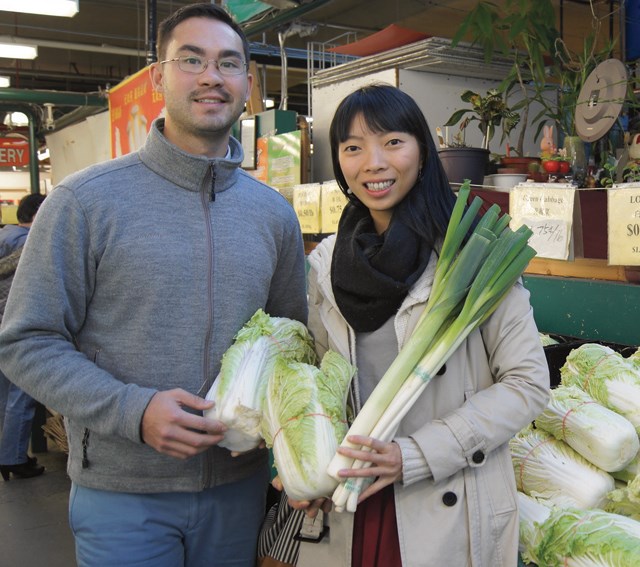For people from a Western culture, the idea of someone helping themselves to the lovingly grown vegetables and plants in a stranger’s garden is abhorrent and nothing short of theft.
For some Asian cultures, however — particularly older generation new immigrants from China — if there are no fences around a community garden, then the stuff growing in it is just that, for the community.
That’s the surmise of Claudia Li, the founder of the not-for-profit Hua Foundation, which aims to encourage Chinese-Canadians to participate in local food issues.
“I think there are people who come from a Chinese culture who have a different relationship with the land,” said Li, herself a Chinese-Canadian.
“People who come from a history of struggle and poverty may look at life as first come first serve.
“They could be thinking, ‘Why is there no fence?’ There is definitely a cultural misunderstanding and there needs to be more cross-culture education.”
Rather than finger-pointing, allied with the “we know best” approach, Li feels any cross-culture entente cordiale needs to come from a place of philosophical exchange.
“People from other cultures need to understand that the gardens are being created for everyone to work in and enjoy,” added Li.
“There needs to be more sense of ownership and time investment; that way they will be less likely to just help themselves.”
Although she grew up in Canada, Li has visited Hong Kong several times and community gardens are still a very new concept there.
“In China, it simply doesn’t happen,” she said.
“The way they look at the land is very different; they see it as a resource to produce food, so we need to have a better understanding of where they are coming from.”
Colin Dring, Richmond Food Security Society’s executive director, said his organization is putting together a media analysis to figure out what outlets need to be targeted to be as effective as possible with their message about thefts from community gardens.
“We’ll be looking at certain sections of the media and how they talk about food and farming; we’re looking for the push points,” said Dring.
“We have two media interns coming in the summer to really get going on this. So hopefully by the fall we can get started.”



